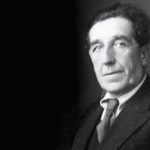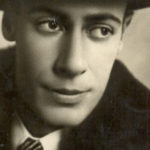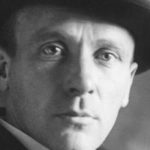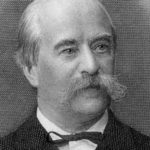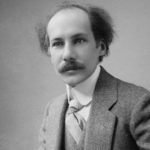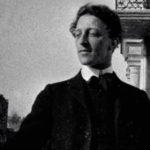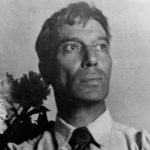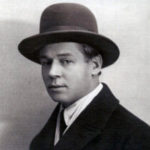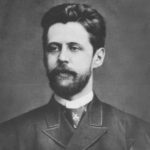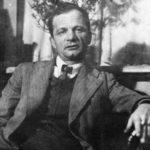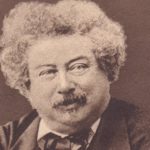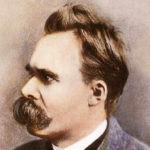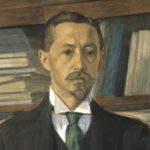Interesting facts about Vladimir Mayakovsky
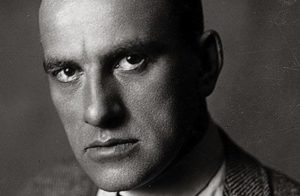 Vladimir Mayakovsky – one of the most famous poets of Soviet times, the voice of the people’s revolution, as it was called by contemporaries. Together with this he is one of the most controversial figures in the literary world of the time, and critics have been fiercely arguing about his works to this day.
Vladimir Mayakovsky – one of the most famous poets of Soviet times, the voice of the people’s revolution, as it was called by contemporaries. Together with this he is one of the most controversial figures in the literary world of the time, and critics have been fiercely arguing about his works to this day.
Vladimir Mayakovsky was born in a Georgian village in the family of a forester and a Kuban Cossack. He had two sisters and two brothers, but both boys died in early childhood.
When Mayakovsky was 13 years old, his father died of blood poisoning, having been pricked with a needle for stapling documents. Since then, and throughout his life, the writer was afraid of pins, pins, needles and all sorts of bacteria. Therefore, the writer always took soap with him and washed his hands at every opportunity.
After the death of his father, the Mayakovsky family moved to Moscow, where Vladimir went to school, but was expelled from the fifth grade because of a lack of money to pay for training.
Fascinated by the ideas of Marxism, Mayakovsky took part in several illegal actions and was arrested three times. Although not a single verdict was issued against him, the poet spent 11 months in Butyrka prison because of his violent disposition.
Mayakovsky wanted to volunteer for the front of the First World War, but he was not taken into the army because of political unreliability.
Thanks to the patronage of Maxim Gorky, Mayakovsky came to military service in a driving school located in Petrograd. A few years later, he led a detachment of 7 soldiers, who arrested General Secretov, who headed the school. Then the writer gained recognition as unfit for service in the armed forces.
Mayakovsky was not officially married, but he knew exactly about his two offspring.
Muse and lover of the poet for many years was Lilya Brik. Mayakovsky lived for a time with three of Lily and her husband.
When Mayakovsky read his poem about Lenin from the stage of the Bolshoi Theater, the applause did not cease for about 20 minutes. One of the audience in the hall was Joseph Stalin.
Mayakovsky leads the Russian and Soviet writers in the number of jokes written about him.
The poet warmly supported the Bolsheviks and the ideas of communism, devoting a whole poem to the struggle against religion.
During the trip to Paris, Mayakovsky fell in love with an emigre Tatyana Yakovlev, who, however, did not reciprocate him. Then the poet took to the flower shop the whole fee for his book and ordered this money once a week to send a beautiful bouquet to his lover. Bouquets continued to come and many years after the death of Mayakovsky. During the occupation of Paris by the Germans, these flowers saved Yakovlev’s life: she sold bouquets to buy herself at least some food.
The requiem for Mayakovsky lasted 3 days, but even during that time, all those who wished could not say goodbye to him. The coffin with his body was carried in the cemetery to the sound of the “Internationale”.
Mayakovsky is one of the members of the “Club 37”, which includes artists who died at the age of 37 years or at the 37th year of life. In addition to the Soviet poet, Bayro, Belinsky and others appear in it. Mayakovsky committed suicide – shot himself in the heart, broken by a string of setbacks. There is also an alternative version, according to which he died as a result of an unsuccessful game in “Russian roulette”.
Mayakovsky did a lot of acting, mostly in films based on his own scripts. Most of these films were not preserved in whole or in part.
In honor of the great Soviet poet, quite a number of motor ships were named, but a considerable number of them went to the bottom for various reasons.
There is an opinion that Mayakovsky began to write poetry in the form of a “ladder”, since in those years the newspapers paid authors royalties for the number of lines, not the signs.
Mayakovsky was a passionate fan of gambling and during his trips to Europe often disappeared behind the card table.
After an unsuccessful game in the pool, Mayakovsky left his opponent a receipt, in which he transferred the right to receive a fee for one of the collections of poems.
